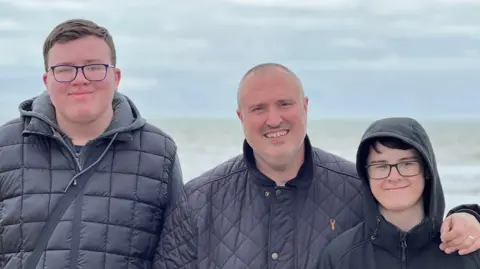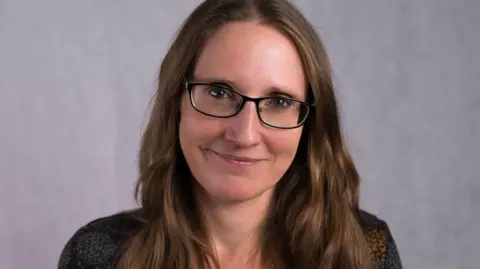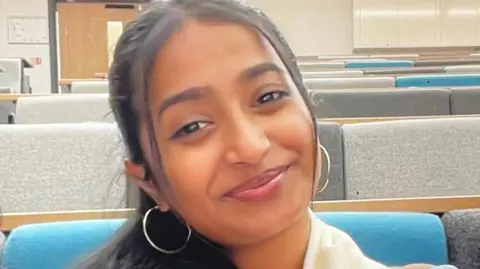Children 'dropped down the agenda' during pandemic
 Webber Family
Webber FamilyA Cambridge professor says the interests and voices of children and young people should be respected after they were "dropped down the agenda" during the Covid lockdown.
An article by Prof Tamsin Ford in the British Medical Journal said efforts should be made to bring children and young people on board, even during an emergency situation like the pandemic.
It followed findings that 200,000 research studies on mental health impacts were carried out at the height of the pandemic, but only 35 concerned children.
Prof Ford said big decisions were made about children and young people, but they were barely involved.
 Cambridge Children's Hospital
Cambridge Children's HospitalThe article said better evidence on how children's mental health could be affected by health shocks, like the Covid pandemic, was essential to inform policy responses.
It added their interests and voices must be represented and respected to tackle a wide evidence gap.
The peer reviewed article drew on multiple sources, including a survey shared with Cambridge Children's Network and charities.
It also described how experiences diverged. Some families enjoyed additional time together, but children in abusive households, and young carers, faced isolation and extra threats to their mental wellbeing.
Luke, 17, from Stevenage, was diagnosed with a brain tumour in 2020 and restrictions on hospital visitors and school closures meant that his parents could visit him, but his younger brother Ryan was unable to because he had had to live with his grandparents to enable the parents to continue with the hospital visits.
Luke's father Peter said: "There were no therapy dogs coming in for games, no being in the communal areas. Neither of them got to experience any of that [as a patient and a visitor] for the whole time.
"It's just like this big black hole that Luke and Ryan were in, separate from each other."
 Supplied
SuppliedCo-author, Ann Sabu, 18, from Cambridge, who is studying to be a doctor, said when schools reopened, she noticed some of her peers struggling with anxiety.
She called for better access to mental health support for children and more research as to why some struggled during the pandemic, while others did not.
"Going back to school was never the same because you had the one-way system, you had to wear masks, you had to sanitise all the time," said the teenager.
"It felt very controlling. It felt like Covid took away from our school experience because there were so many regulations and rules."
Prof Ford said schools should have been the last organisations to close and the first to reopen.
She added responses to future health shocks must be based on sound evidence, as robust as that carried out for adults, ensuring children's mental health was protected and promoted.
"The impact on children should be front and centre of pretty much every policy decision - but it's really not," said Prof Ford.
"During Covid the interests of children and young people were not at the table."
Follow Cambridgeshire news on BBC Sounds, Facebook, Instagram and X.
